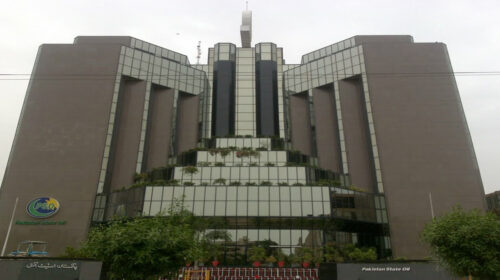rising cost of liquefied natural gas (LNG), Pakistan State Oil (PSO) and Sui Northern Gas Pipeline Limited (SNGPL) have found themselves in a debt trap. In the past, the power sector used to be a key defaulter of payments to PSO on supply of furnace oil. Today, however, SNGPL is liable to pay PSO a whopping Rs396 billion. In March of last year, its dues stood at Rs277.8 billion and have been piling up ever since.
This means that PSO’s receivables against SNGPL have almost doubled, as the company has not been able to recover dues from domestic consumers due to the lack of a legal framework. Governments have continually delivered LNG to domestic consumers during the winter season to overcome the gas crisis.
This is despite knowing that there is no legal framework in place to recover the money from domestic consumers. PSO brings LNG cargoes for onward supply to SNGPL which then distributes the gas to the end-consumers. During the previous regime, parliament passed a bill to introduce a weighted average cost of gas – which is the average price of imported LNG and locally produced natural gas – to curtail circular debt in the gas sector.
This, however, was challenged in the Sindh High Court (SHC) and has not been implemented thus far. The compressed natural gas (CNG) sector was the only one to receive LNG without any subsidy placed on the commodity. Other customers, including the fertiliser and textile sectors and five export-oriented sectors received LNG at discounted rates. As LNG was only available to resolve the gas shortage, it was only available at higher prices.
Politically motivated gas schemes continued to win votes from different constituencies of parliamentarians without ever realising that there was no indigenous gas available in the country. In addition, PSO was facing a financial crunch in which receivables continued rising due to the nonpayment of dues from different sectors on account of fuel supply. These receivables stood at Rs508.3 billion in March last year as several clients failed to pay their bills for fuel supplies. In the first nine months (July-March) of financial year 2021-22, PSO’s receivables increased by Rs151.3 billion and stood at Rs357 billion at the beginning of July 2021.
At present, PSO’s receivables have gone up to Rs620 billion, placing a huge financial burden on the company while it struggles to pay its dues to foreign LNG suppliers. Currently, PSO has to pay Rs205 billion to the Kuwait Petroleum Corporation (KPC) on account of fuel supply and standby letter of credit (SBLC) payments for LNG. While PSO supplies oil mainly to different clients across the country, it also provides LNG to public gas utilities. Besides oil, circular debt has also emerged in the supply of imported LNG, which has contributed Rs396 billion to the debt. Of the total receivables, PSO has to receive Rs176 billion from the power sector on account of oil supply for electricity generation.
Generation companies are another set of major defaulters and have to pay Rs146 billion. Hub Power Company Limited (Hubco) owes Rs24 billion whereas Kot Addu Power Company Limited (Kapco) has to pay Rs5 billion. PSO also supplies jet fuel to Pakistan International Airlines (PIA), another major defaulter, sitting at due payments of Rs23.7 billion. The state-run oil marketing company is also due to receive Rs8.9 billion from the government on account of price differential claims. On the other hand, PSO has to pay Rs41.38 billion to oil refineries for fuel supply.
It owes Rs24.4 billion to the Pak-Arab Refinery Company (PARCO), Rs6.1 billion to Pakistan Refinery Limited (PRL), Rs3.49 billion to National Refinery Limited (NRL), Rs6.13 billion to Attock Refinery Limited (ARL) and Rs1.12 billion to Enar.







